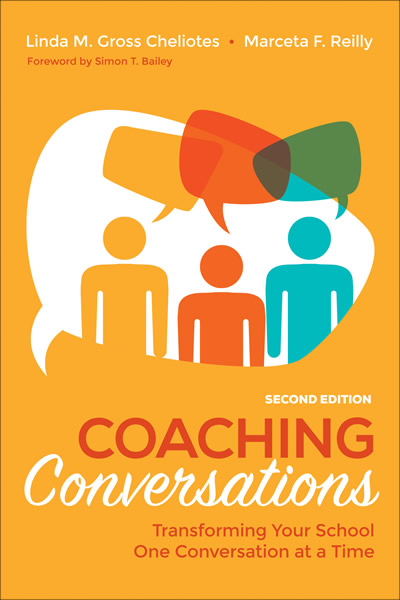Marceta Fleming Reilly, Ph.D, PCC and Linda Gross Cheliotes, Ed.D, ACC
One of our favorite quotations comes from Susan Scott’s book, Fierce Conversations (NY: Berkley Books, 2004, p xix):
“While no single conversation is guaranteed to change the trajectory of a career, a company, a relationship or a life – any single conversation can.”
Coaching clients and our personal experiences often demonstrate to us how powerful and important even a single conversation may be. For example, Linda’s thinking was forever transformed by a conversation with a successful businessman who eliminated the word “failure” from his vocabulary when he was just nine years old and repeating third grade.
As you begin the new school year, we pose some conversational questions for your consideration:
- What does it mean to be a committed listener in a conversation?
- What are your goals for this year and how might you express them so others will be motivated to support and movewith you toward your goals?
- What open-ended questions (those that cannot be answered by just a “yes” or “no”) might you pose that will cause deep reflection by others?
- How could you provide feedback to others that results in both reflective responses and maintains and even builds trust between you?
About the Authors:
Linda Gross Cheliotes, Ed.D, ACC and Marceta Fleming Reilly, Ph.D, PCC are co-authors of the recently published book, Coaching Conversations: Transforming Your School One Conversation at a Time (Corwin Press, 2010). Linda and Marceta are also highly experienced school leaders and currently credentialed coaches by the International Coach Federation.









